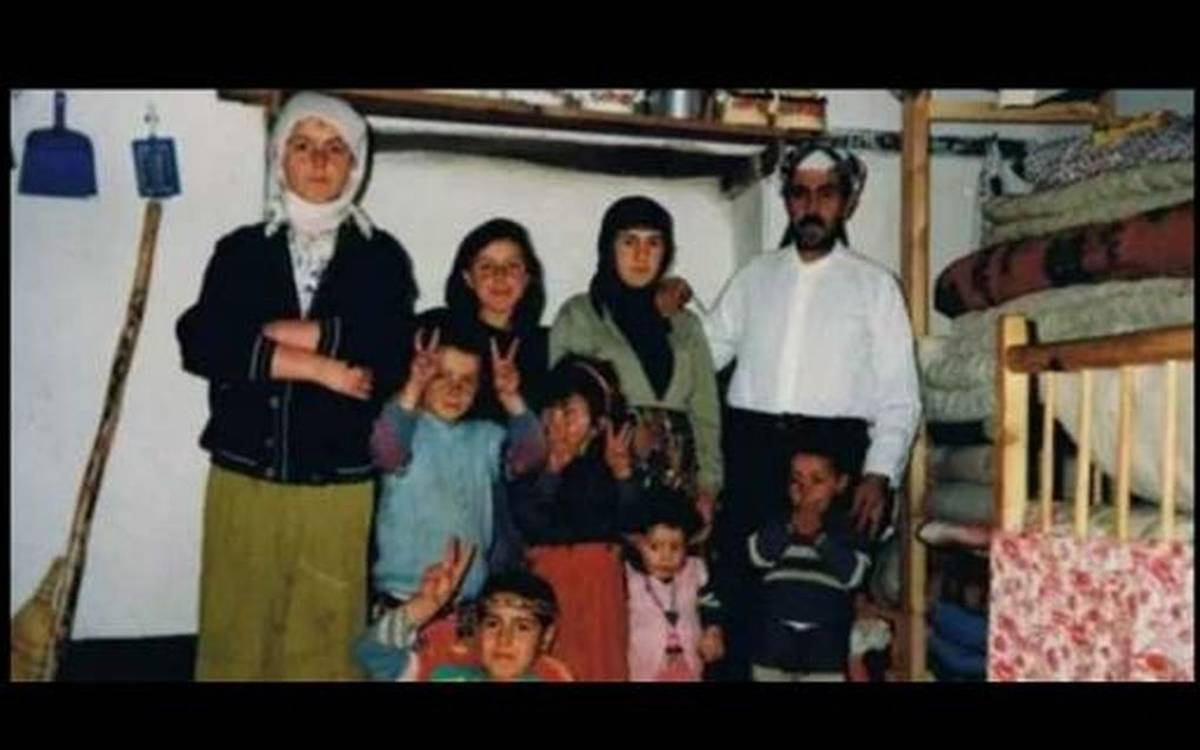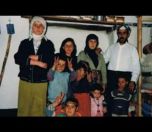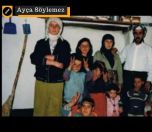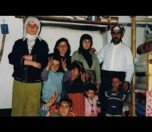The 21st hearing of the trial related to the massacre in the town of Vartinis (Altınova) in the Korkut district of Muş, where nine members of the same family were burned to death on October 3, 1993, was held today (December 4).
The 1st Heavy Penal Court of Kırıkkale decided to drop the case citing that a two months passed since statute of limitations.
Justice not achieved
"Once again, justice could not be achieved in the Vartinis case. It was stated that we could not overcome the last barrier of impunity, and that the time for this pain had passed. Aysel is left alone with her grief, while we are left alone with our deep shame."
Aysel Öğüt's lawyer and the President of the Muş Bar Association, Kadir Karaçelik, evaluated today's court ruling in this way.
The Human Rights Association (İHD) also declared, "The statute of limitations was applied in the Vartinis case. Another major crime against humanity has ended with impunity. Once again, we emphasize that there should be no statute of limitations for crimes against humanity."
Today's hearing
Aysel Öğüt, the sole survivor of the massacre, her husband Abdullah Öğüt, People's Equality and Democratic Party (HEDEP) Member of Parliament for Muş Sümeyye Boz, HEDEP Law and Human Rights Commission Co-Spokesperson Nuray Özdoğan, Human Rights Association (İHD) Central Executive Committee member Nuray Çevirmen, representatives from the Memory Center, Muş Bar Association President and lawyer Kadir Karaçelik, lawyers from the Ankara Bar Association, and Özgür Yaldız, a member of the Lawyers for Freedom Association (ÖHD), attended today's hearing.
In the hearing, the prosecutor argued against considering the fugitive defendant Captain Bülent Karaoğlu, who gave the order to burn the village in an operation where a soldier also lost his life, as the sole authority, and requested the dismissal of the case due to the statute of limitations.
Following the prosecutor's statement, Sinan Özaraz, the President of the Van Bar Association, remarked that a crime against humanity had been committed in Vartinis, emphasizing that crimes against humanity should not be subject to the statute of limitations. He stated that the prosecutor's recommendation should not be accepted.
"All I ask from you is justice"
The panel then heard Aysel Öğüt in response to to the prosecutor's recommendation, who said, "All I ask from you is justice. I don't want my family's rights to be neglected. My family was massacred before my eyes, and I want this murderer to be caught."
In his statement, Lawyer Fuat Özgül, emphasizing that the case cannot be subject to the statute of limitations, stated:
"In this case, although there was no terrorist act, an investigation was initiated attributing the massacre to 'terrorists.' Numerous individuals unrelated to the incident were detained. Those detained and arrested were acquitted. However, there has been no investigation conducted into the main perpetrator of the case.
The Muş Public Prosecutor's Office did not conduct a proper investigation and tried to 'get rid of' the case. A lawsuit was filed by the Public Prosecutor's Office just a short time before the 20-year statute of limitations. We do not participate in the prosecutor's recommendation. An effective investigation has not been conducted by the public authority against the defendants. They were protected by the public authority. The suspended periods should also be added to the 20-year statute of limitations."
Right to life of children during times of war and conflict
Lawyer Nuray Özdoğan, reminding that all but two of those who lost their lives in the Vartinis massacre were children, noted that international conventionson the protection of the right to life of children during times of war and conflict assign a duty to the court to illuminate this crime.
Requesting a criminal complaint against law enforcement authorities or administrative authorities instructing law enforcement, who are complicit in the defendant not being apprehended and being in a fugitive state, Özdoğan asked for information from intelligence units about the defendant and requested the continuation of the collection of evidence.
After evaluating the prosecutor's recommendation following the defenses, the court ruled that two months had passed beyond the statute of limitations date and decided to dismiss the case.
What happened?
On October 2, 1993, in the village of Vartinis in the Korkut district of Muş, Mehmet Nasir Öğüt, Eşref Oran, Sevda Öğüt, Sevim Öğüt, Mehmet Şakir Öğüt, Mehmet Şirin Öğüt, Aycan Öğüt, Cihan Öğüt, and Cinal Öğüt were killed by soldiers.
The incident occurred after a conflict in a mountainous area north of Vartinis during the day, following the death of a non-commissioned officer.
The Hasköy District Gendarmerie Commander, while passing through Vartinis after taking the non-commissioned officer's body, stopped the vehicle, and said, "Tonight, I will burn this village, I will destroy you," fired a few shots into the air, and left. An operation with special operations forces, commandos, and hundreds of soldiers was carried out in the town around 2-3 am.
Nasir Öğüt's house was very close to the central location of the town hall. The house, belonging to M. Sıddık Öğüt, was set on fire due to an allegation that someone made a victory sign in front of the house.
According to eyewitnesses, those who came out of the houses into the streets were gathered with their hands raised in front of the town hall. Despite there were efforts of the villagers to save those in the burning house, security forces did not allow them, in the face of screams coming from the house.
The mother, father, and seven children in the house burned alive. Witnesses in their statements described how, despite the small children climbing the window railings, they were not allowed to leave the house.
The efforts of Nasir Öğüt's brother, Eşref Öğüt, for seeking justice faced threats of experiencing the same fate.
Aysel Öğüt, the only survivor from the family, filed a criminal complaint. The Muş Chief Public Prosecutor's Office closed the case, claiming that the house was burned by the PKK.
The wreckage of the house in Vartinis was turned into a museum with the contributions of the Nusaybin Municipality in 2012-2013.
Upon gathering her strength, Aysel Öğüt made a second criminal complaint in 2003, and the case was re-examined, leading to the opening of a trial. However, due to "security reasons," the case was transferred from Muş to the Kırıkkale Heavy Penal Court, in far-west Turkey and the first hearing was held on December 4, 2013. During their initial statements, the defendants either claimed not to remember the incident or said that the fire was started by the PKK.
Gendarme Captain Bülent Karaoğlu, who served as the Hasköy District Gendarmerie Company Commander at the time of the incident, Infantry Senior First Lieutenant Hanefi Akyıldız, who served as the Hasköy District Gendarmerie Commando Company Commander, Şerafettin Uz, the Special Operations Branch Director of the Muş Police Department, and Turhan Nurdoğan, who served as the Jandarma Sergeant at the Gökyazı Gendarmerie Station, were tried as defendants. Despite all requests, they were not arrested during the trial. All defendants, who were tried for "causing the death of multiple people by intentionally setting a house on fire," were acquitted.
The Court of Cassation Chief Public Prosecutor's Office stated that there was no effective investigation and prosecution, overturned the acquittal decision, and emphasized that the trial needed to be retried.
The Court of Cassation 1st Criminal Division determined that the person responsible for the massacre was Captain Bülent Karaoğlu, who was the Hasköy District Gendarmerie Commander at the time.
Following this decision, the trial was reopened at the Kırıkkale 1st Heavy Penal Court, and an arrest warrant was issued for Karaoğlu; however, the decision could not be executed.
(AS/PE)









